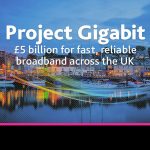Vodafone UK Test Disaggregated Broadband Network Gateway

Telecoms giant Vodafone has teamed-up with Benu Networks, Casa Systems, Cisco and Nokia to conduct a “world first” multi-vendor test of TR-459, which reflects a new open architecture standard for the Broadband Network Gateway (BNG) that could make it “quicker and easier” to deliver faster fixed broadband services to customers.
The BNG is essentially an access point for subscribers, through which they connect to the broadband network. Essentially, the BNG is designed to establish and manage subscriber sessions, which it does by aggregating traffic from multiple subscriber sessions and routing it to the network of the service provider. In the past, BNGs didn’t do any routing, but modern routers are now much more sophisticated and requirements have also risen.
The Broadband Forum’s TR-459 standard reflects that of a Disaggregated Broadband Network Gateway (DBNG), which essentially separates the control plane and user plane functions by means of open and standardised interworking protocols.
Advertisement
The goal of DBNG is essentially to simplify BNG deployment, while also providing greater flexibility and scalability to help keep up with modern developments. One good example of such a development is the rise in convergence between fixed line broadband and 5G mobile (mobile broadband) networks, which is something that BT (EE) and Virgin Media (O2 / VMO2) are working on.
Vodafone’s test harnessed this new open architecture (DBNG via TR-459) to enable it to work using separate software and hardware from multiple vendors. “This is an important step in opening up the current single-supplier, monolithic broadband gateways to greater technological innovation from a more diverse supply chain,” said the operator. The DBNG technology “will change the way broadband networks are built,” added Vodafone.
The test allowed the core control functions of the gateway, such as authenticating a user and increasing bandwidth to support streaming services, to be separated and managed efficiently in the cloud whilst ensuring multi-vendor interoperability. Vodafone can then separately upgrade, scale and deploy new features and add more capacity, enabling greater agility and faster time to market when making enhancements across its pan-European network.
Johan Wibergh, Vodafone’s CTO, said:
“We are already driving a more diverse and open mobile ecosystem with Open RAN, and now we are targeting fixed broadband. As an industry, and with government support, we owe it to people with no or slow internet access to quicken the rollout of new capabilities on fast, fixed broadband.”
The operator said that DBNG will also lower development costs for existing and new ecosystem partners, while allowing deeper integration with 5G.
Advertisement
Mark is a professional technology writer, IT consultant and computer engineer from Dorset (England), he also founded ISPreview in 1999 and enjoys analysing the latest telecoms and broadband developments. Find me on X (Twitter), Mastodon, Facebook, BlueSky, Threads.net and Linkedin.
« ISP Lit Fibre Goes Live with Gigabit Broadband in Wiltshire UK






















































I’m sure this is great for the network engineers, but they seem to be lacking in customer facing improvements. Still no IPv6 deployment. Still no FTTP on Openreach lines. What’s encouraging customers to switch to them or stay?